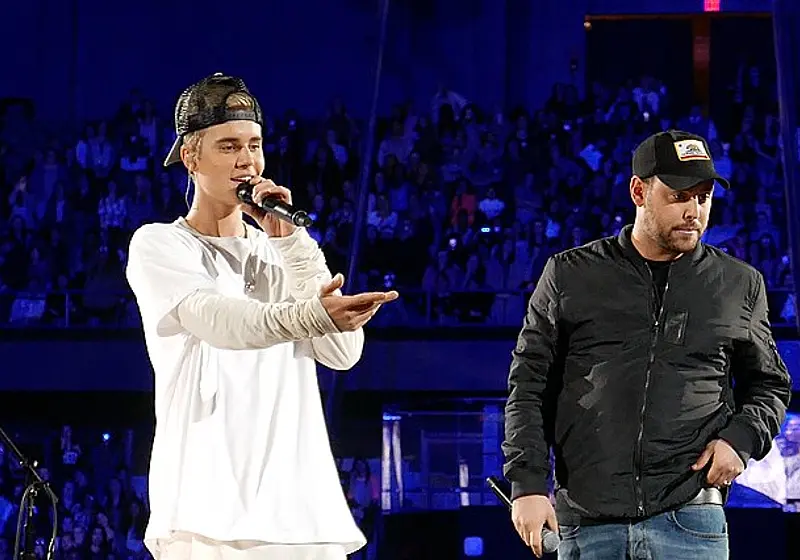In the age of social media, celebrities are wielding more power and influence than ever before. Being in a hit Netflix show is enough to give a previously unknown actor ten million Instagram followers in a matter of days. On the whole, celebrities seem to use their platforms for posting red carpet selfies, reels of makeup routines, product sponsorships—and for activism.
It's become normal to scroll through a favorite Hollywood actor's Instagram page and see, nestled amongst photos of them at puppy yoga and sushi bars, a pastel square containing a few lines about some social issue or another. Comments under such posts typically range from gushing ("glad I follow someone so good-hearted!") to admiring ("respect for talking about this"). But while, on the surface, such acts of activism may seem benign, they can be highly harmful.
Why is this type of activism problematic?
Unfortunately, such activism is frequently performative. While activism in its own right refers to the championing of social or political change, performative activism describes activism executed to ‘increase one’s social capital rather than because of one's devotion to a cause.'
For instance, a celebrity might bring an issue up once and then never mention it again, even when the problem's still ongoing. Or, worse, the celebrity may talk about a topic despite having done no research into it. Instead, they post the first thing they see on social media that they think will go down well with followers.
This was recently seen with pop singer Justin Bieber. He posted an Instagram story to his 292 million followers, displaying the words 'Praying for Israel' over a devastating backdrop of destroyed buildings. The only problem?
The photo was of Gaza, not Israel. Instead of addressing his mistake, Bieber quickly deleted the story and reposted it with a more neutral background. This is just one example of a celebrity blatantly not researching what they're putting out to their followers. At best, such behavior is disingenuous; at worst, it is deeply damaging.
A further example of performative activism was seen with Blackout Tuesday. In In 2020, Blackout Tuesday was created as a means of virtually protesting against racism and police brutality. Millions of social media users posted a black square accompanied by the caption #blackouttuesday.
Many celebrities seemed to think posting the square meant they had fulfilled their responsibility and immediately returned to posting about their personal lives and work. Such a perception of activism is harmful. While participating in actions like Blackout Tuesday can effectively show collective solidarity, activism mustn't stop there. Displaying a continuous interest in an issue highlights to followers that social justice is not a 'trend' but something longstanding that we should all be invested in and work hard to achieve.
Unfortunately, however, celebrity performative activism frequently sees social and political issues being treated as a trend of sorts. When a global issue occurs, a post will be created involving ambiguous, vaguely sympathetic words that are just enough to say "I care" without actually taking a stance or providing valuable information. The post is then circulated amongst celebrities and presented to their countless followers.
Following this, the celebrity will fall silent about the issue and consider their moral duty complete. Activism is treated like a tick box exercise, a way to placate followers and let the individual pat themselves on the back for being so very enlightened and altruistic.
If performance activism is so harmful, should we still expect celebrities to speak on global matters?
To put it simply, yes! We should absolutely still expect celebrities whose large platforms we have helped build to use their following for good. What's important, however, is eliminating the performative aspect of activism.
The easiest way celebrities can do this is by educating themselves on an issue before speaking out on it. It's not enough to see a few posts on social media with lots of likes, assume those people are correct, and repost their views. Efforts should be made to learn about the topic.
This can be done by engaging with relevant literature and articles or reaching out to individuals and organizations who are well-versed on the subject. Not only will this help foster a genuine interest in the topic, it will result in more thoughtful, authentic activism.
What can we as followers do?
Although we may hope that celebrities will engage in more genuine activism, the sad reality is many will not. To combat this, we must be careful about who we follow and look up to. Celebrities are not all-powerful deities—they are flawed humans, just like us. While we should expect those with large platforms to use their following for good, we should not rely on them to inform us of what is right and wrong.
It's, therefore, crucial to think critically about the celebrities whose content you engage with. Don't sweep old racist tweets or interviews under the carpet. When people show us who they are, we need to believe them. Hold the people you admire to higher standards and, in turn, yourself.
To finish: following backlash for not speaking up about the Israel-Palestine conflict, Selena Gomez posted an Instagram story explaining how she was taking a break from social media due to all that was going on. She said, "I wish I could change the world. But a post won't." Understandably, many people took issue with the statement given that Gomez is the most followed woman on Instagram, with 430 million followers.
While there are many downsides to social media, one of its greatest strengths is how far-reaching it is, making it a powerful tool for raising awareness. Users can utilize social media to amplify other people's voices, educate people about global issues, and discuss matters that the news may be ignoring. Whether a person has 1 million followers or 100 hundred, their activism can have an impact. Speaking up for those whose voices are being silenced is an easy way of making a difference and is important in maintaining our common humanity.


